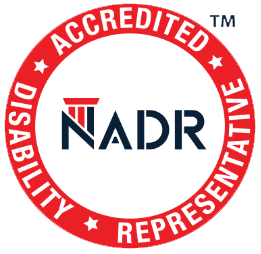How to Strengthen Your Disability Claim Appeal
If your Social Security disability claim has been denied, you’re not alone. Many initial filings for Social Security Disability Insurance (SSDI) or Supplemental Security Income (SSI) are rejected. However, a denial doesn’t mean it’s the end of the road. In fact, many people win their cases during the disability claim appeal process. The key is to know how to strengthen your appeal and improve your chances of success.
Why Disability Claims Get Denied
Understanding why claims so often get denied in the first place is vital. Some of the more common reasons include:
- Lack of Medical Evidence: There are insufficient records of your disability
- Earnings Over the Limit: You’re still working and earning above the substantial gainful activity (SGA) threshold
- Failure to Follow Treatment Plans: Prescribed treatments aren’t followed without a valid reason
- Missed Deadlines: You didn’t meet the deadlines set by the Social Security Administration (SSA)
With all of this in mind, you can identify the weaknesses in your original application and address them during the appeal.
Collect Medical Evidence
The foundation for a successful disability claim appeal lies in strong medical evidence. The SSA needs proof that your disability prevents you from working for at least 12 months. Additionally, the more detailed and updated your medical records are, the better your chances of winning your appeal
To help strengthen your medical evidence, you can take these steps:
- Visit your healthcare providers regularly, as constant appointments show your condition is ongoing and serious
- Request detailed statements from your doctors about how your condition limits your ability to work, including physical, mental, and emotional impacts
- Include diagnostic test results from lab tests, X-rays, MRIs, CT scans, and any other scans you might have had to confirm your condition
- Document treatments and medications, including what you’ve tried and how they have or haven’t helped, to show an effort to manage your disability
If you have the most complete and detailed medical evidence possible for your case, it can be harder for the SSA to deny the reality and severity of your condition.
Keep Detailed Records
Besides medical records, keeping your own detailed notes can bolster your case during your disability claim appeal. The more evidence you can offer, the stronger your argument will be.
To keep strong personal records, make sure that you:
- Keep a journal on how your condition affects your daily life, including specifics on pain levels, mobility issues, fatigue, and cognitive difficulties
- Record any troubles you have with your job if you’ve tried to go back to work, which might involve things like trouble standing for long periods or lifting objects
- Make notes of any side effects of medications, especially if they limit your ability to work to your full capacity
You want to provide a clear and ongoing record of how your disability affects your ability to function in everyday life and in a work environment. This can make it easier to demonstrate that your condition prevents you from keeping a job.
Pay Attention to Deadlines
One of the easiest ways to undermine your disability claim appeal is to miss a deadline. The SSA has strict timelines for submitting paperwork, and missing them can lead to an automatic denial.
After you get the denial letter to your initial claim, you have 60 days to request an appeal. Make sure to file your appeal quickly. Don’t wait until the last minute. If you miss the deadline, you’ll have to start over.
Always keep track of submission dates. Keep notes on when you submit your appeal paperwork and who you give it to. This can provide proof for your case if there are any administrative errors. Time’s not on your side during a disability claim appeal, so it’s essential to stay organized and meet every deadline.
Prepare for the Hearing
The next step in the process is usually a hearing before an administrative law judge (ALJ). This is your chance to argue your case and explain why your claim should be approved. It can occur in person, by a Microsoft Teams meeting, or by conference call.
For the best outcome at your ALJ hearing, you will want to do the following:
- Work With an Attorney: A disability attorney knows what to expect and can present your case in the most effective way possible
- Prepare Thoroughly: Go over your evidence beforehand, and be ready to explain how your condition keeps you from working
- Be Honest and Specific: Avoid exaggerating, be honest about your limitations, and give specific examples to all of the judge’s questions
The ALJ hearing is an ideal opportunity to have your case heard by someone who can overturn the denial. Preparation and honesty can help you make a strong impression.
Understand the Necessity of Legal Help
Going through a disability claim appeal can be stressful and overwhelming, especially with a complicated system like the one that SSA has. Hiring an experienced SSDI/SSI attorney/representative can significantly increase your chances of winning your case.
These attorneys/representatives understand the system and are familiar with SSA rules, regulations, and requirements. They also know what specific evidence tends to be most persuasive in disability cases and can make sure you have the strongest disability claim appeal possible.
Additionally, most lawyers and representatives work on a contingency fee basis, meaning they don’t get paid if you lose your case. You know your team is motivated to help you win. Working with a qualified disability claim appeal attorney/representative can make all the difference for your case.
Don’t Give Up on Your Disability Claim Appeal
If you’re struggling with a disability claim appeal, don’t hesitate to get help. At Disability Support Services, we have extensive experience in these kinds of cases. Contact us today to learn how we can help you strengthen your appeal and secure the SSDI/SSI benefits you’re entitled to.




Is there any way to see if a person deserves an increase in benefits? I’ve been surviving on what I think is both ssdi and SSI since I was 19. I am now 52. Is there a program or assistance help for someone in my position. I do receive food assistance. Times are hard and I need help. Any kind of referral for food, rent, or any other type of help would be greatly appreciated. I have a few years left, and would just like to survive until then. Thank you for just reading this. God Bless
Hi Kevin, thank you for reaching out and sharing your situation. It sounds like you’ve worked hard to manage on limited resources, and I understand the pressure that rising costs can bring.
To answer your question, while SSDI and SSI benefits generally only increase with the yearly COLA adjustment, there may be ways to review your eligibility for additional support. Here are some resources that might help:
Finally, it may be beneficial to speak with a local legal aid organization. They can sometimes identify additional support programs based on unique individual circumstances, and in some cases, can assist with a benefits review.
I hope this information provides a helpful starting point. Take care, and wishing you the very best.